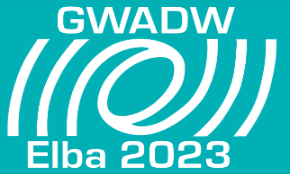Speaker
Description
The DECi-hertz Interferometer Gravitational wave Observatory (DECIGO) project is the future Japanese space mission, which aims at detecting primordial gravitational waves (PGWs) produced in the inflation period. Three arm cavities with 1,000 km compose one cluster of Michelson laser interferometers. We theoretically proposed a quantum locking with optical spring to improve DECIGO’s quantum-noise-limited target sensitivity for the PGWs with the large optical diffraction loss of the cavities.
Quantum locking is a mirror control technique with auxiliary short low-loss cavity. Combining the technique with an optical spring, we successfully improved the target sensitivity by a broader dip in the frequency regime.
In an experiment, we demonstrated a portion of the technique that combines multiple detector outputs from the quantum locking system to optimize the target sensitivity. The combination was obtained by the square completion method. The experiment uses a simplified tabletop optical setup, two identically designed Fabry-Perot cavities sharing each end mirror. The shot noise is simulated by the classical noise directly injected into the signals, while the radiation pressure noise is simulated by shaking mirrors. The frequency dependence of the combination is obtained by the simulation reflecting the experimental setup.
We show the experimental result in this presentation

